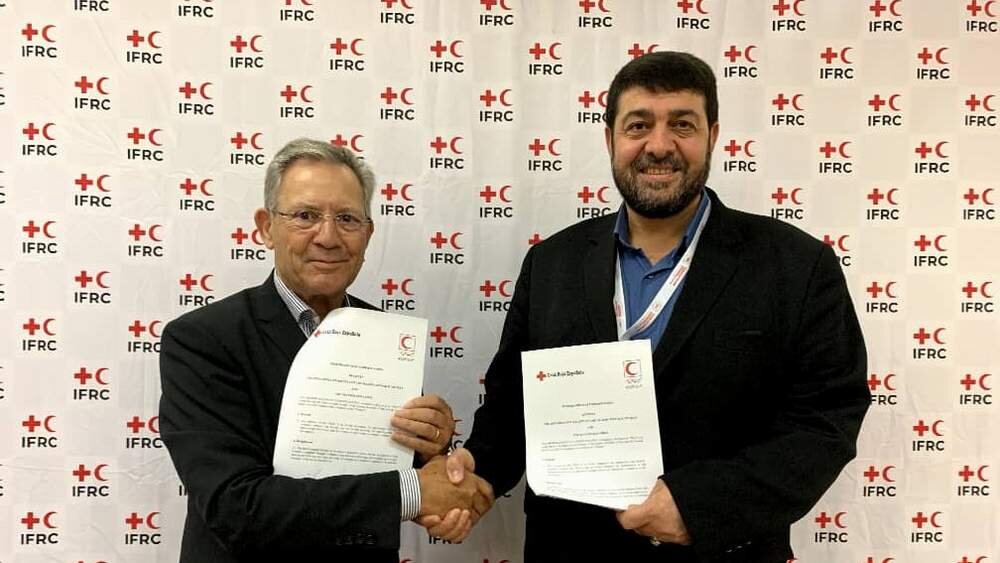INSUBCONTINENT EXCLUSIVE:
of the International Federation of Red Cross and Red Crescent Societies General Assembly in Geneva.IRCS head Pir-Hossein Kolivand met with
Spanish Red Cross head Javier Senent Garcia, discussing joint cooperation and sharing experiences of the two National Societies.Emphasizing
performing joint relief exercises, exchanging experiences, and cooperation in the fields of youth and volunteers, Kolivand said that the
establishment of Red Crescent Houses with the aim of raising resilience and empowering communities in the face of disasters and natural
crises is one of the valuable achievements that can make changes in services of the Societies.The Iranian Red Crescent is a strong society
that has valuable experience, expressing interest in expanding ties with the Iranian Red Crescent Society.After signing the MOU, it was
decided that representatives of both Societies communicate to implement the provisions of the document so that the fields of bilateral
cooperation can be evaluated in a more specialized way and the necessary steps can be taken to implement the memorandum.IRCS servicesThe
IRCS, established in 1922, is one of the first and oldest members of the movement and is currently one of the top five societies in the
world due to its significant activities in the national and international arenas.In 2005, the IRCS received the Henry Davison Award for
outstanding humanitarian services, and the IRCS initiative of volunteers was selected as the best project (out of 50 projects from 45
national societies), by the General Assembly of the International Federation of Red Cross and Red Crescent Societies.In addition to offering
services to the victims of natural disasters in the country, it has taken numerous missions in international disasters and incidents helping
the people of Afghanistan, Palestine, Iraq, Southeast Asia earthquakes, Lebanon, Gaza, Somalia, and Yemen.Moreover, the Iranian Red Crescent
Society provides medical services to people in 13 Asian, African, and Latin American countries.Currently, some 14 medical facilities are
offering humanitarian, relief, and health services to the deprived people in 13 countries, including Azerbaijan, Afghanistan, the United
Arab Emirates, Bolivia, Ivory Coast, Sierra Leone, Ghana, Congo, Kenya, Lebanon, Mali, Niger, and Ecuador.FB/MG

